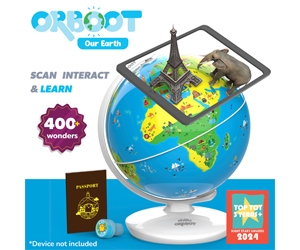Go organic
Published
Organix have produced a handy guide to support parents who are keen to give their children organic food. It’s designed to help families navigate through the abundance of food choices available to their little ones from weaning onwards.

Eating organic is good for us, the planet, wildlife and animals. Research* shows that organic crops have a much higher nutritional quality than their non-organic equivalents. It has also shown that eating organic foods can increase intake of antioxidants which have many nutritional benefits. What’s more, no herbicides and virtually no pesticides are used in organic farming, reducing the effect on wildlife, as well as cutting pollution to soils, waterways and air.
Families often try to buy products that are locally grown if they can, but the guide also offers advice on eating seasonally which means eating foods that are naturally ready to harvest at the moment you eat them. Many of us worry about the extra cost of buying organic, but produce that is grown seasonally may be more affordable as it doesn’t have to be imported and is more readily available during that month.
Organic produce can be seen as a luxury that can be hard to justify when food is often refused and ends up on the floor or in the bin. And with the cost of living crisis, it’s more important than ever to count the pennies. The guide includes 10 simple tips to source organic food for less so it’s affordable for the family:
- Check prices - you may be surprised to find that some organic items cost the same or similar to non-organic, especially supermarket own brand ranges.
- Buy locally - buying straight from growers or farmers’ markets means you can often snap up a good deal and support local, independent businesses.
- Substitute the ‘dirty dozen’ - these non-organic fruits and veg are known to have the highest amount of pesticide residue left on the skin once it has been washed and prepared. If going fully organic feels unaffordable right now, try swapping just these ones. See our news story The Dirty Dozen.
- Grow your own - a money-saving and satisfying way to access organic produce, which tastes infinitely better than anything you buy in the shops! You don’t need a garden: plants can be grown using organic compost on windowsills or at an allotment.
- Don’t forget your freezer - organic items can be frozen as soon as you get home, which means you can prolong their shelf life and stop them heading to the landfill.
- Sign up for an organic box scheme - a cost efficient way to access organic fruit and veg for less.
- Don’t overbuy - buy herbs, chillies, lemons, spices and other foods loose so you don’t over-buy as this saves money and reduces food waste.
- Use more vegetables and pulses - good quality organic meat and fish usually cost more, so introducing a few more vegetarian meals into your family menu can help save you money.
- Buy dried, tinned and frozen organic foods as well as fresh-they’re often cheaper, last longer and can be just as good for you.
- Mix it up - buy organic vegetables and mix them into rice or pasta to bulk out dinners
*Newcastle University research for British Journal of Nutrition 2014.
Visit www.organix.com






